
Prediabetes
Home > Services > Prediabetes
What is Prediabetes?
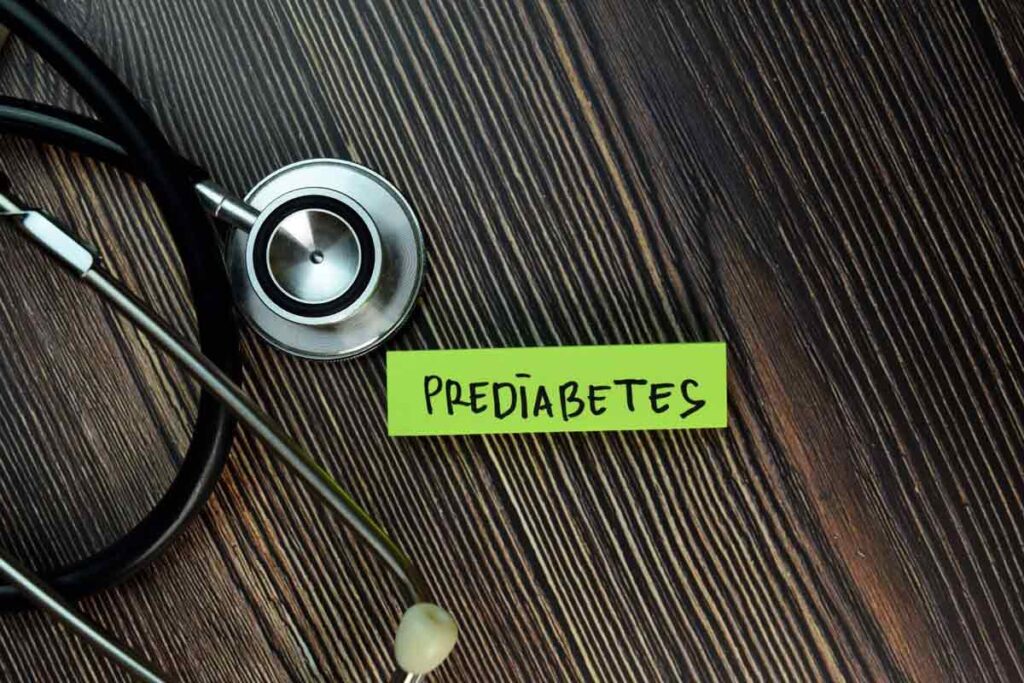
It is also called Impaired Fasting Glucose or Impaired Glucose Tolerance
Prediabetes is a chronic metabolic condition where blood glucose numbers are higher than normal, but not high enough for a diagnosis of diabetes.

Telemedicine Hours
Monday
9:00am-6:00pm
Tuesday
9:00am-6:00pm
Wednesday
9:00am-6:00pm
Thursday
9:00am-6:00pm
Friday
9:00am-6:00pm
Saturday
8:00am-12:00pm
Receive expert medical care from the comfort of your own home
What happens to the insulin in your body when you have prediabetes?
Insulin is a hormone made by your pancreas that acts like a key to the door of your cells and allows the sugar in your blood into your cells to use as energy.
If you have prediabetes, the cells in your body don’t respond normally to insulin.
Your pancreas makes more insulin to try to get cells to respond and allow the sugar to transfer from the blood.
Eventually your pancreas can’t keep up, and your blood sugar rises, setting the stage for prediabetes and type 2 diabetes down the road.
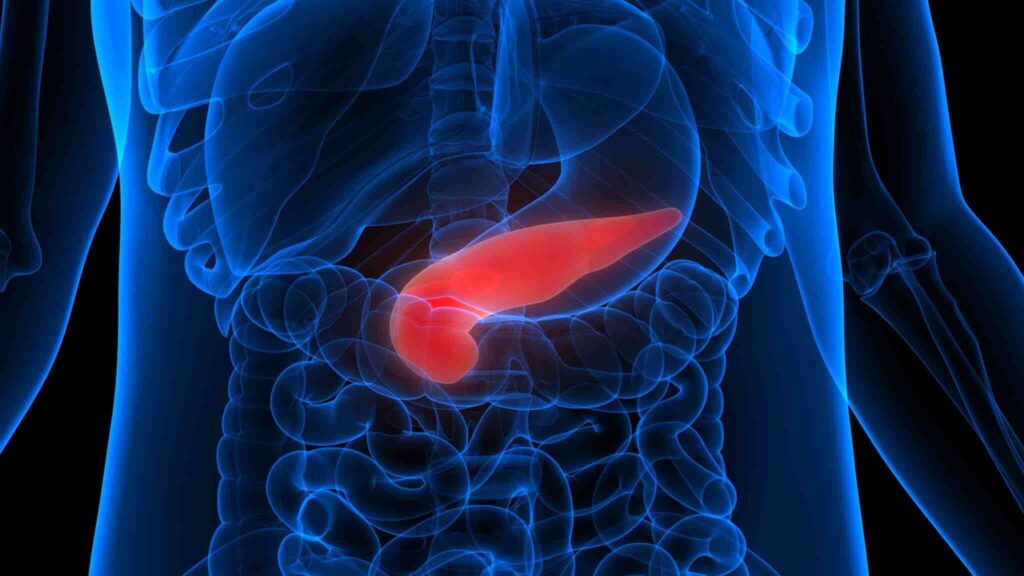
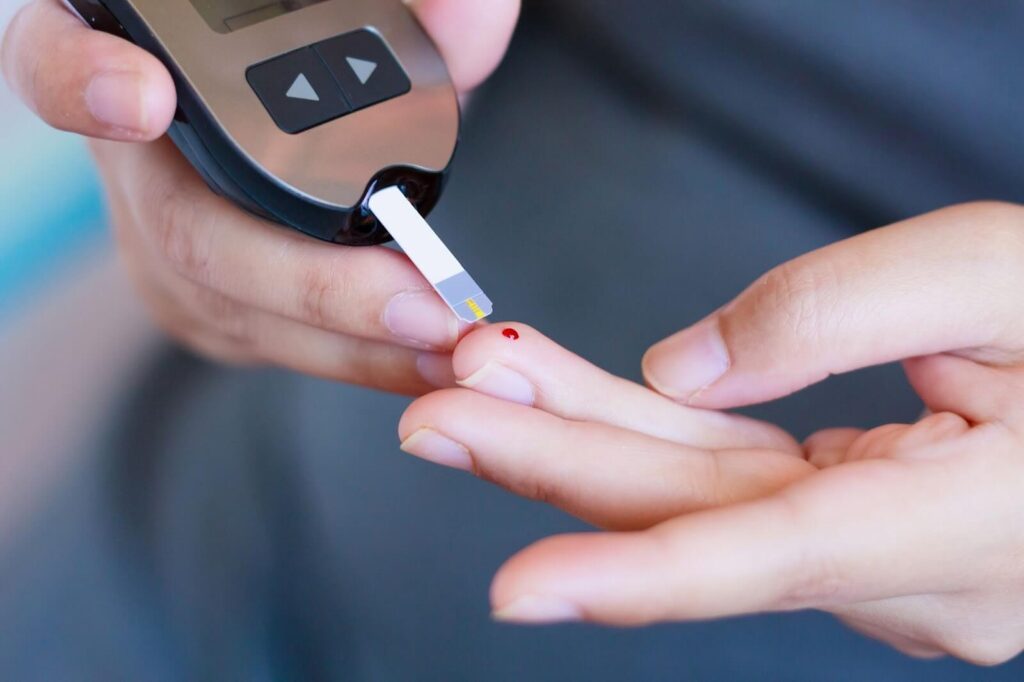
How to diagnose prediabetes?
According to the American Diabetes Association, fasting blood glucose between 100-125mg/dl and A1c between 5.7-6.4% is considered pre-diabetes.
If your fasting blood sugar is less than 100mg/dl or A1c is less than 5.7% then it is not considered pre-diabetes.
Risk factors of Prediabetes
You can get prediabetes at any age. However, you are at higher risk of getting it :
If you are overweight (BMI>25)
45 years or older
Family history of diabetes – immediate family like a parent, brother or sister with Type 2 diabetes
Had gestational diabetes (diabetes during pregnancy)
Gave birth to more than a 9lbs baby
Get physically active less than 3 times a week.
If you have Acanthosis Nigricans (dark patches of velvety skin in your body folds like neck or armpits) which is a sign of insulin resistance
Have polycystic ovarian syndrome
If you are from certain ethnic groups including South Asians, Hispanic, African Americans and Native Americans, you are at higher risk of having pre-diabetes than Caucasians.
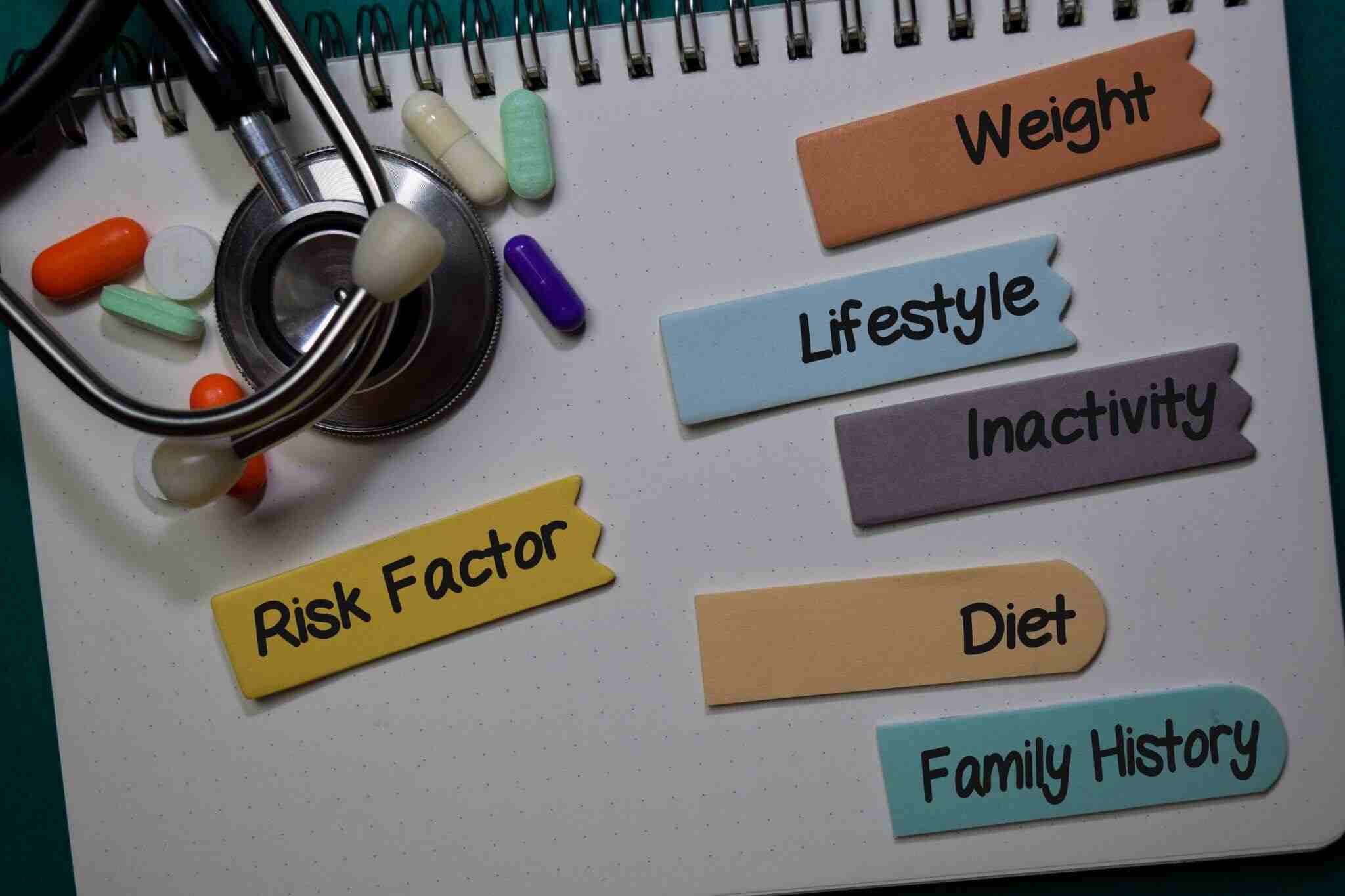

What Are the Signs & Symptoms of Prediabetes?
Signs an Symptoms of Prediabetes are as follows:
Increased thirst and hunger
Blurry vision
If you feel more tired than usual
If you go to the bathroom often to urinate
If you have a cut or wound that takes a long time to heal
If you get infections more frequently
If you have numbness or tingling sensations in your feet or hands.
What is the treatment of Prediabetes?
If you are overweight or struggling with obesity, studies show that even losing a small amount of weight and getting regular physical activity can lower your risk for developing pre-diabetes.
A small amount of weight loss could be anywhere from 5% to 7% of your body weight, just 10 to 14 pounds for a 200-pound person.
Regular physical activity means getting at least 150 minutes a week of brisk walking or a similar activity. That’s just 30 minutes a day, five days a week.
However, these are not feasible options for everyone and can be frustrating to some individuals. That’s where prediabetes treatment comes in. At Everest Diabetes and Endocrinology, we understand the challenges and offer personalized solutions to help you manage or prevent prediabetes, including tailored treatment plans and support.
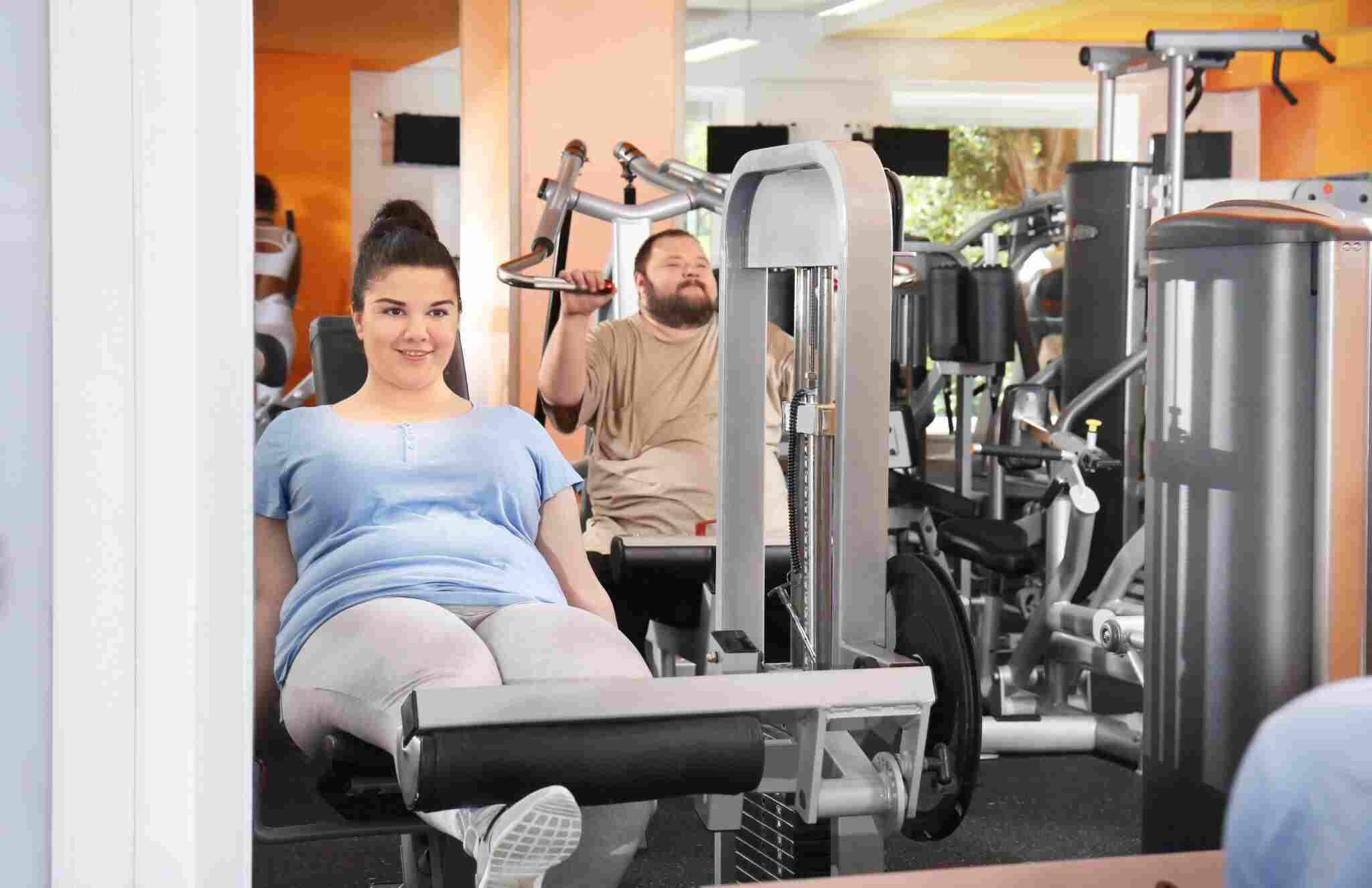
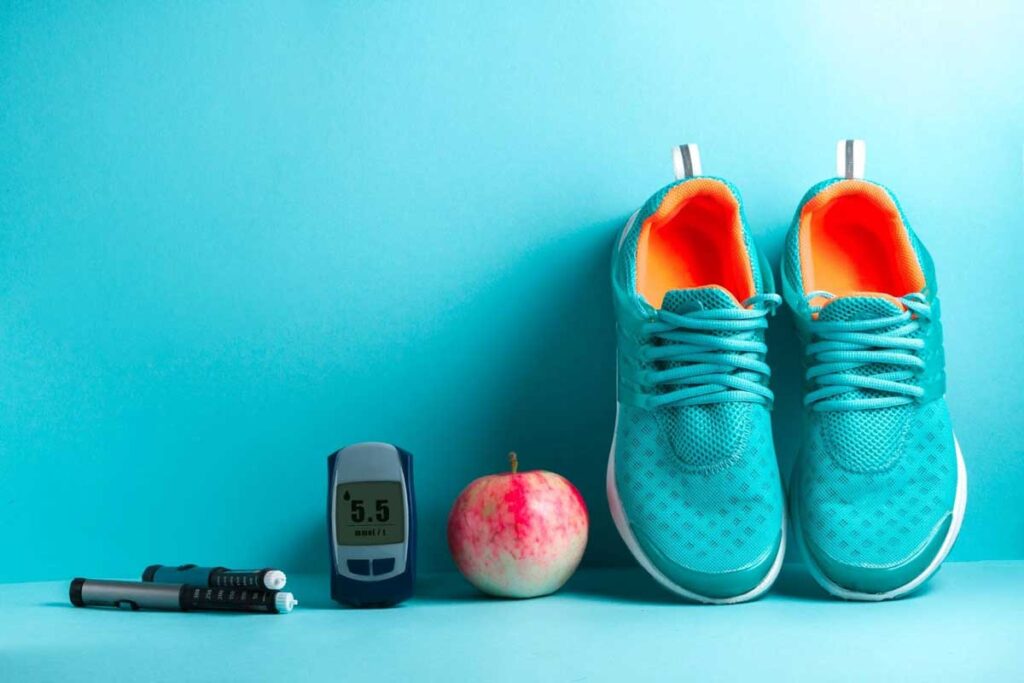
Practical tools to help you succeed
We have developed a lifestyle change program including dietary counseling, mindful eating, and medication management to help you reverse diabetes or prevent it from developing to type 2 diabetes by helping you lose weight.
Wherever you might be on your journey, we will meet you there.
There are no clear symptoms of prediabetes, and often people don’t know they have prediabetes until they have already progressed to type 2 diabetes.
If individuals don’t take any early interventions or action, they can develop Type 2 diabetes within 5 years, also increasing their risk of developing heart attack and stroke.
The good news is that you can reach out to Everest Diabetes and Endocrinology, and we will assist you in making appropriate lifestyle changes and offer proper medications to prevent or delay the progression of type 2 diabetes and heart disease.


Sustainable Change for Optimal Health
We will help you make changes to your lifestyle and help them make your routine. Throughout the program, our Board Certified Nurse Practitioner will work in collaboration with you:
To make realistic, lasting lifestyle changes
Help you discover healthy food choices
Find ways to add more physical activity into your day
Find out ways to manage stress and stay motivated





